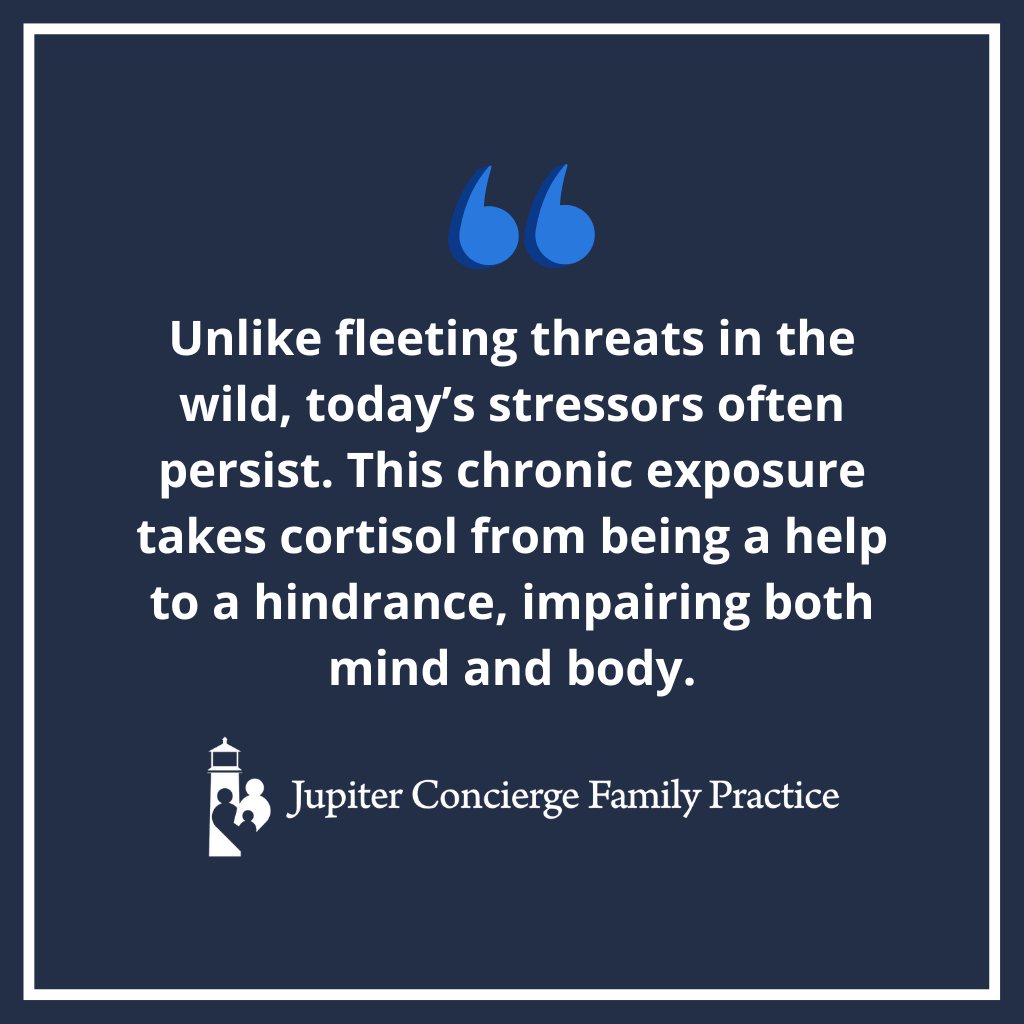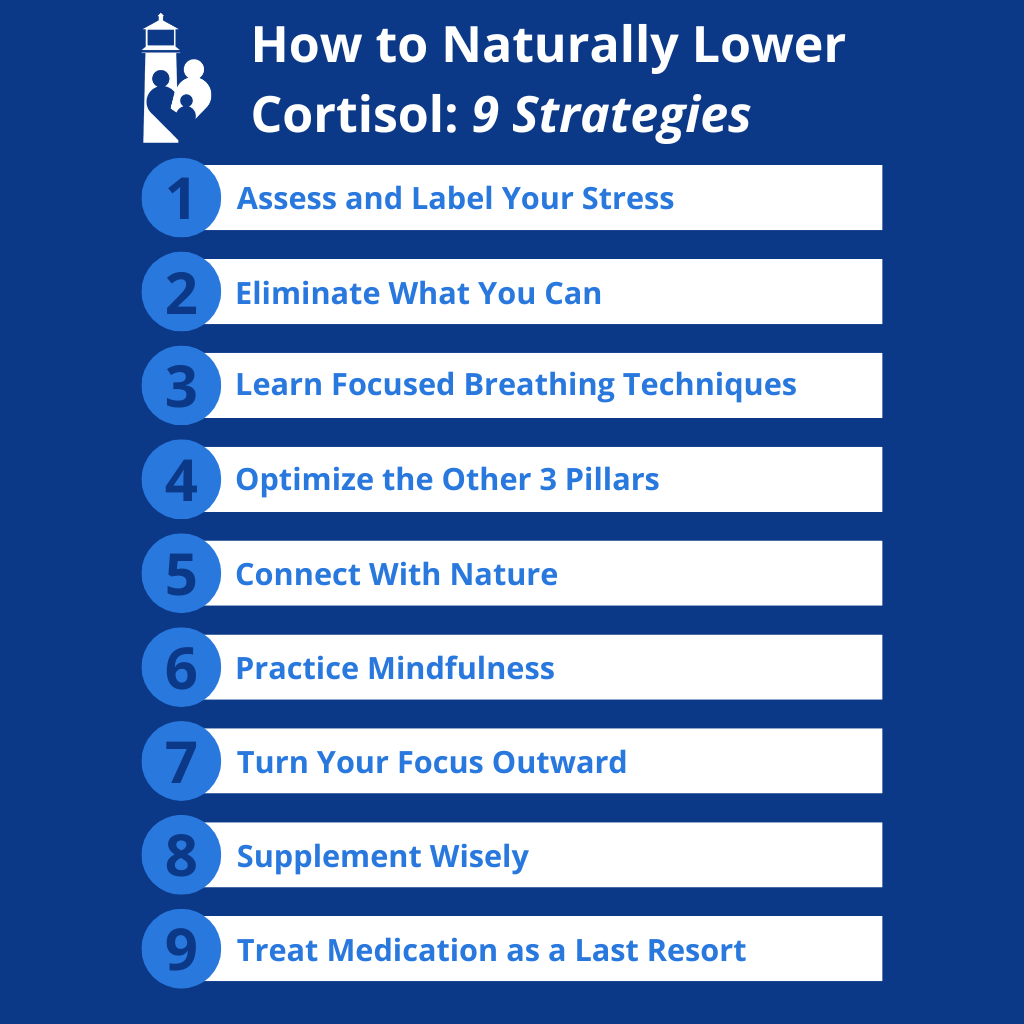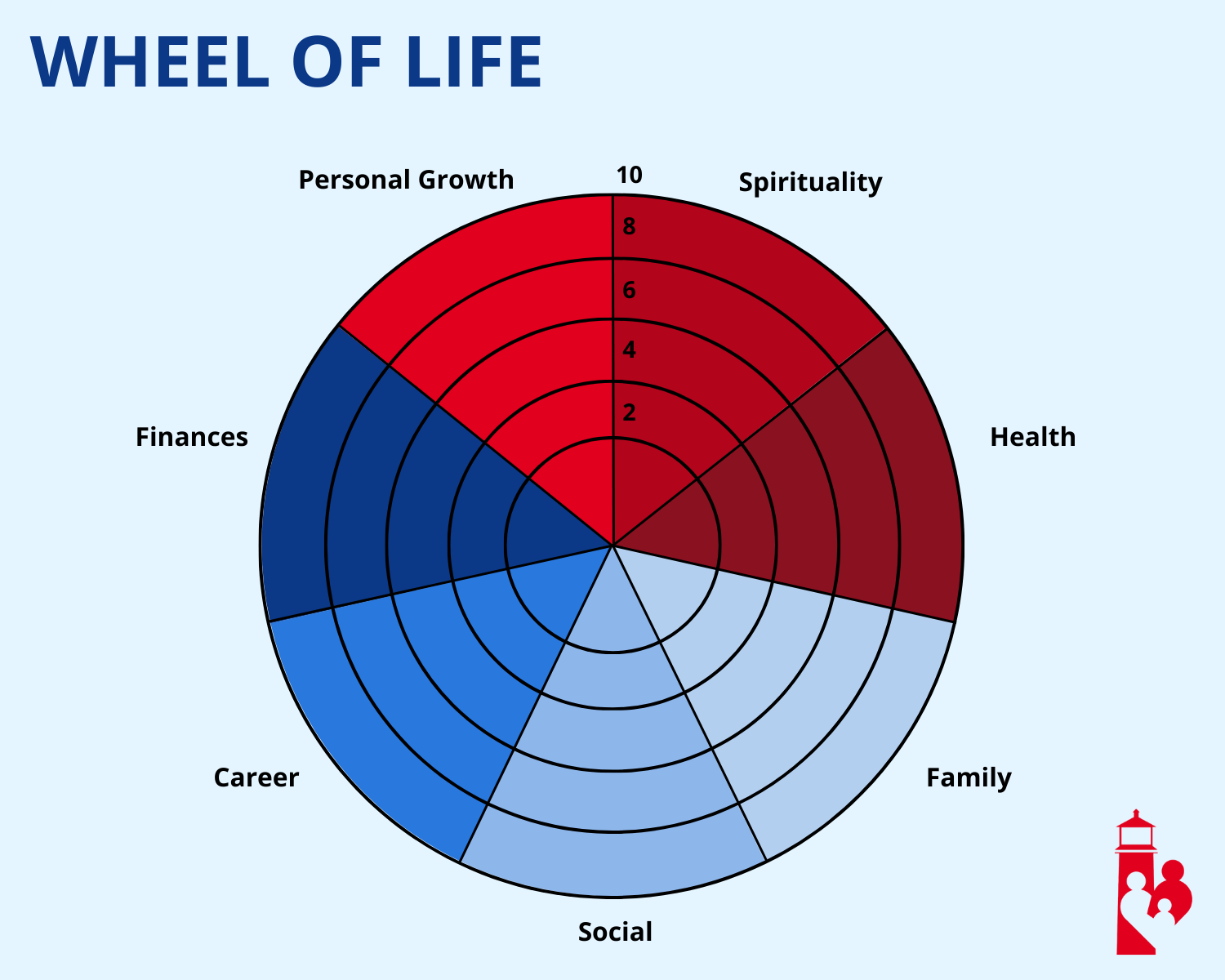
Stress is a universal experience, yet we often overlook how profoundly it affects the body. At the heart of this response lies cortisol, our primary stress hormone.
While cortisol is necessary for our health, we can (and often do) have too much of a good thing. So, what’s the solution?
We can’t all abdicate life and live quietly on a mountaintop. Yet the quick-fix solutions the pharmaceutical industry offers have side effects and risks that aren’t right for everyone.
Fortunately, you don’t have to go to extremes to address your stress. Let’s explore how to naturally lower cortisol for a calmer, healthier life.
The Link Between Stress and Cortisol
Our bodies have a sophisticated stress-response system designed to protect us, helping us maintain attention, physical strength, and quick reactions. In olden times, we wouldn’t have survived without our stress hormones — like adrenaline and cortisol — which spurred us on as we ran from threats like bears and tigers.
Today, however, our “predators” have changed. We’re chased by modern stressors like work deadlines, dysfunctional relationships, or financial worries, yet they trigger the same hormonal responses as life-or-death situations.
For instance, a letter from the IRS can spark the same cortisol surge as a growling tiger in the jungle. The problem? Unlike fleeting threats in the wild, today’s stressors often persist.
This chronic exposure takes cortisol from a help to a hindrance, impairing both mind and body.
Helpful Stress vs. Harmful Stress
Some modern stress can be beneficial.
For example, when I’m recording a video, my cortisol level increases slightly, helping me stay focused and communicate thoughtfully. This type of low-level stress response functions as a tap on the shoulder to keep us profitably engaged.
Other times, however, our stress responses leap from friendly assistants to fight-or-flight mode. Our heart rate skyrockets, our respiration increases, and we start sweating.
This is excellent in situations like a car accident, where we may need speedy reactions and quick thinking. But outside of such acute situations, this stress response qualifies as dysfunctional.
Stress and the Four Pillars: Elimination Over Management
Stress doesn’t exist in isolation; it affects every area of your health. Consequently, “stress elimination” (note: not “stress management”) is one of the Four Pillars of Health I frequently discuss.
To get a glimpse into how stress affects the other three health pillars, let’s look at cortisol’s impact in each scenario.
Sleep
Elevated cortisol right until bedtime keeps you in fight-or-flight mode and disrupts your ability to rest deeply. The next day, your body compensates by releasing more cortisol to keep you functioning on inadequate rest.
The fatigue and other symptoms then lead to further stress, potentially perpetuating a vicious cycle.
Exercise
While exercise is a proven stress reliever, it’s less effective when you bring your stressor with you to the workout.
Picture, for example, running on a treadmill while prepping for a big meeting the next day. Your body continues to react to the stressor and your cortisol remains elevated, reducing the exercise’s benefits.
Nutrition
When stress hormones are elevated, they activate your sympathetic (fight-or-flight) nervous system while suppressing your parasympathetic (rest-and-digest) system. This makes it harder for your body to properly digest and absorb nutrients.
Further, stress-induced cortisol has a way of damaging your gut lining, leading to increased blood sugar, leaky gut, and bacterial overgrowth.
How to Naturally Lower Cortisol: 9 Strategies
Beyond optimizing sleep, diet, and exercise, several practices can help eliminate stress and reduce cortisol levels naturally.
Assess and Label Your Stress
I’ve previously spoken about the “Wheel of Life,” a practical tool for assessing major life areas and allotting attention where needed.
If stress is lurking in your life, you’ll likely find it in one of the wheel’s seven sections:
- Personal Growth
- Spirituality
- Health
- Family
- Social
- Career
- Finances
The wheel works by helping you reflect on and rate each section on a numerical scale. In doing so, you can identify areas of imbalance and make appropriate changes.
For instance, if your family life is a source of strain, your solution isn’t a sleep aid; it’s talking with your spouse or kids. Or, maybe you score a 10 in finances but a 3 in health. A solution might be to invest some of those healthy finances into your physical well-being.
One strategy here is to lean into your strengths to support your weaknesses. Are you strong in spirituality? Use it to shape your approach to health, perhaps by valuing your body as a temple.
Eliminate What You Can
The idea of stress elimination may seem confusing. After all, you can’t just quit every job or exit every relationship.
But stress elimination doesn’t necessarily mean removing every stressor entirely. Rather, it requires a close, honest look at your stressor so you can address its root causes and, thus, reduce cortisol naturally.
For example, a child’s tantrum can be extremely stressful to a parent. In that moment, however, you can neither abandon your child nor force the tantrum to stop. But a shift in mindset can help you.
Since the tantrum is outside your control, try shifting your thoughts from, “This is my problem and my stress,” to, as Jim Rohn says, “Isn’t that interesting?” Instead of owning your child’s stress as your own, transitioning to an observational point of view reduces the emotional toll.
In the workplace, though you may not be able to leave your job, you can address specific aspects that cause stress. If you’re a business owner, excessive stress often means you’re missing a key person or a key process or system. If you’re an employee, speaking with your boss to clarify priorities or instructions may reduce stress.
Learn Focused Breathing Techniques
Deep breathing is a deceptively simple yet powerful weapon against stress. A few slow, intentional inhales and long exhales instantly calm your nervous system, reducing cortisol naturally.
Learning proper breathing exercises, like box breathing or diaphragmatic breathing, is similar to learning physical exercises. Incorporating them into your routine offers a quick and easy way to address stress responses.
Optimize the Other Three Pillars
As mentioned above, stress affects the three other Pillars of Health as well. However, you can preserve these pillars with a few simple strategies:
- Sleep: Develop a relaxing, enjoyable routine to relieve stress before bed to help you recover with a healthy, healing rest.
- Exercise: Practice focused, mindful workouts to take full advantage of the physical and mental relief exercise offers.
- Nutrition: Eat in a calm, unhurried environment, focusing on enjoying your food and the company around you.
Connect With Nature
Cities prioritize creating parks and green spaces for a reason.
Whether it’s walking barefoot in the grass, sitting under a tree, or gazing at a beautiful view, nature can remarkably reduce cortisol. For urban dwellers, even keeping a plant in your home or workspace can help.
Practice Mindfulness
Mindfulness involves minding your own mind. Or, put another way, it means reserving your full attention for your current environment or activity.
When speaking with a friend, you’re fully present, not wondering how tomorrow’s meeting will go or opening the text message that just came through. When exercising or eating, you’re fully focused on the process and all its components.
Mindfulness is the opposite of multitasking, and in today’s distraction-rich world, it can take some practice to employ. Every moment you practice, however, you box out stress and combat chronic cortisol overload.
Turn Your Focus Outward
One of the easiest ways to naturally lower stress is to turn your focus away from yourself.
You might volunteer locally, write a letter to a friend to boost their morale, or adopt a pet. Investing time and attention into something or someone else reduces stress in a multitude of ways.
Supplement Wisely
The above strategies outrank supplementation as strategies for reducing cortisol, but some natural remedies can offer supportive benefits.
For example:
- Ashwagandha: Reduces cortisol and promotes relaxation.
- Chamomile Tea: Calms the mind and enhances sleep.
- Warm Milk: Rich in tryptophan, it encourages rest.
Treat Medication as a Last Resort
A group of medications exists to help people relax. However, a root cause approach is far more effective as a long-term solution for reducing cortisol (and reducing it naturally) than pharmaceutical intervention, which I consider a weapon of last resort.
How to Naturally Lower Cortisol: Final Thoughts
Learning how to naturally lower cortisol doesn’t have to involve complicated techniques or quick-fix medications. Remember, the most effective way to handle stress is by addressing its source.
When you eliminate unnecessary stressors, you’ll discover a renewed sense of control and enjoy a calmer, healthier life.

Dr. David Rosenberg
Dr. Rosenberg is a board-certified Family Physician. He received his medical degree from the University of Miami in 1988 and completed his residency in Family Medicine at The Washington Hospital in Washington, Pennsylvania in 1991. After practicing Emergency Medicine at Palm Beach Gardens Medical Center for two years, he started private practice in Jupiter, in 1993. He is an avid baseball fan and Beatles fanatic, since he was 8 years old. He has been married to his wife, Mary, since 1985 and has three grown children.
David completed additional studies at Mercer University, Macon, Georgia and obtained a BS in Chemistry in 1983.
“My interests include tennis, snow skiing, Pilates and self-development.”



